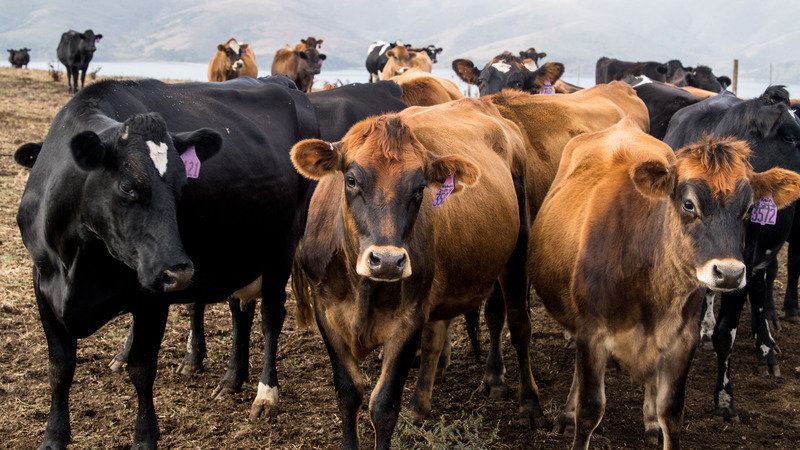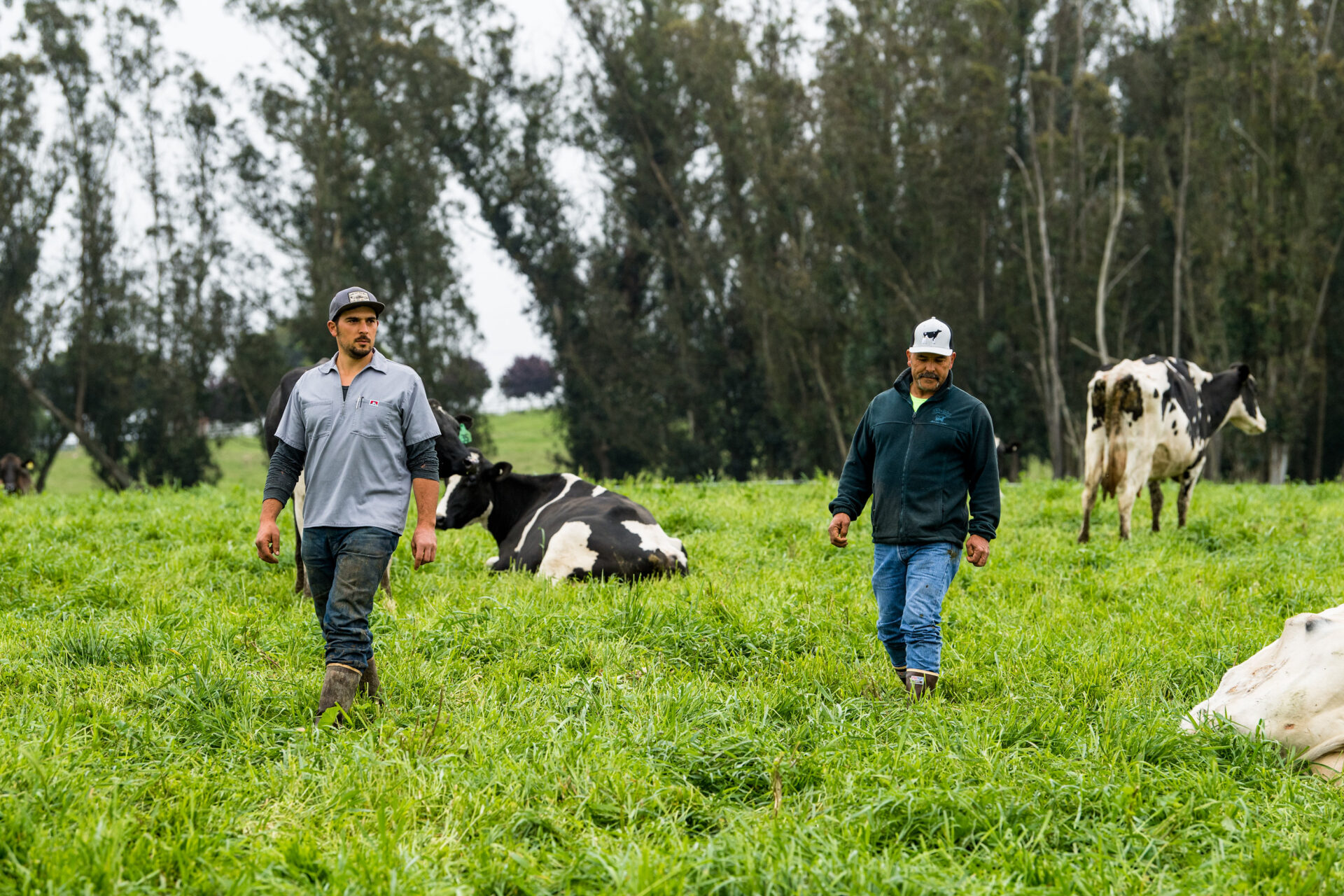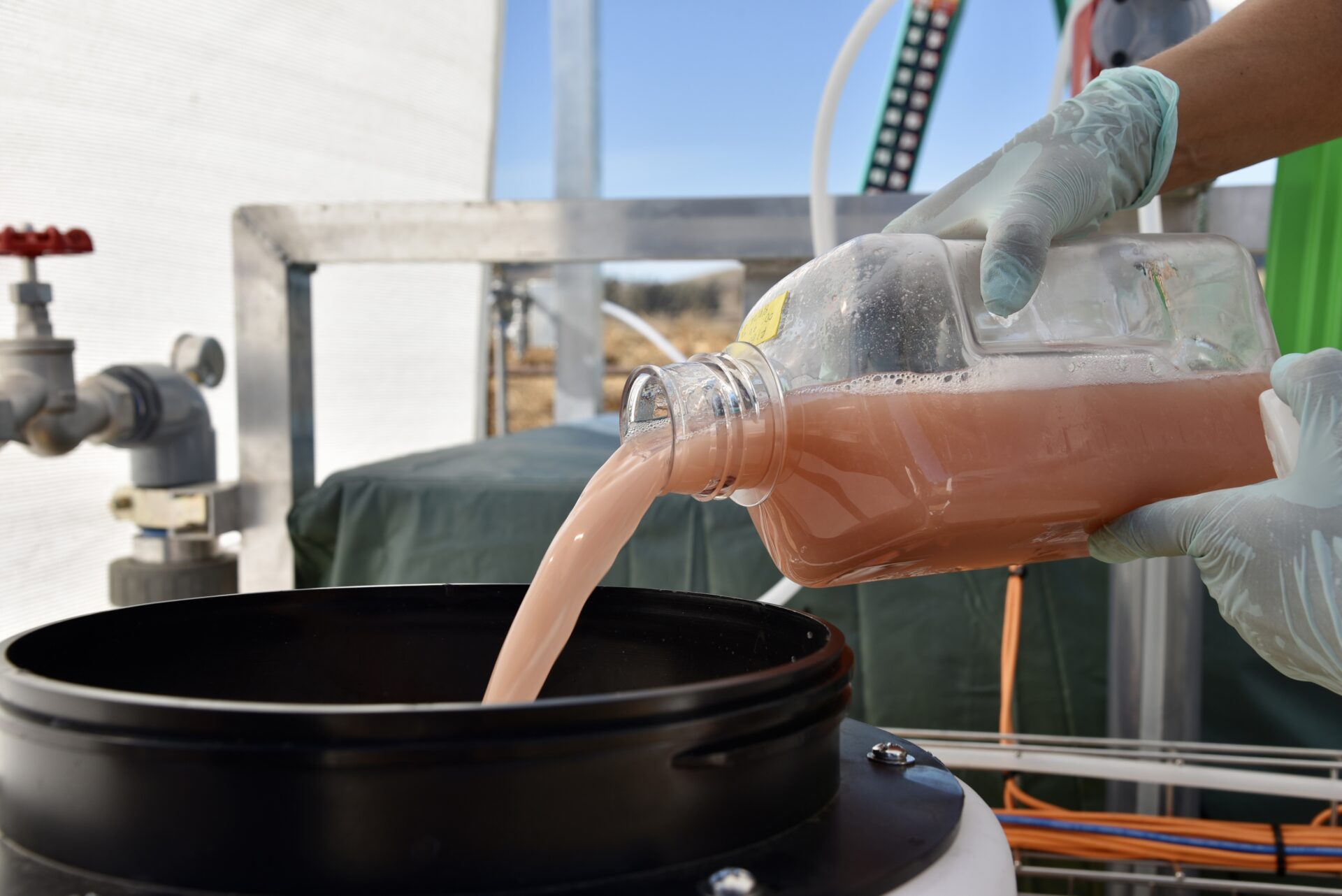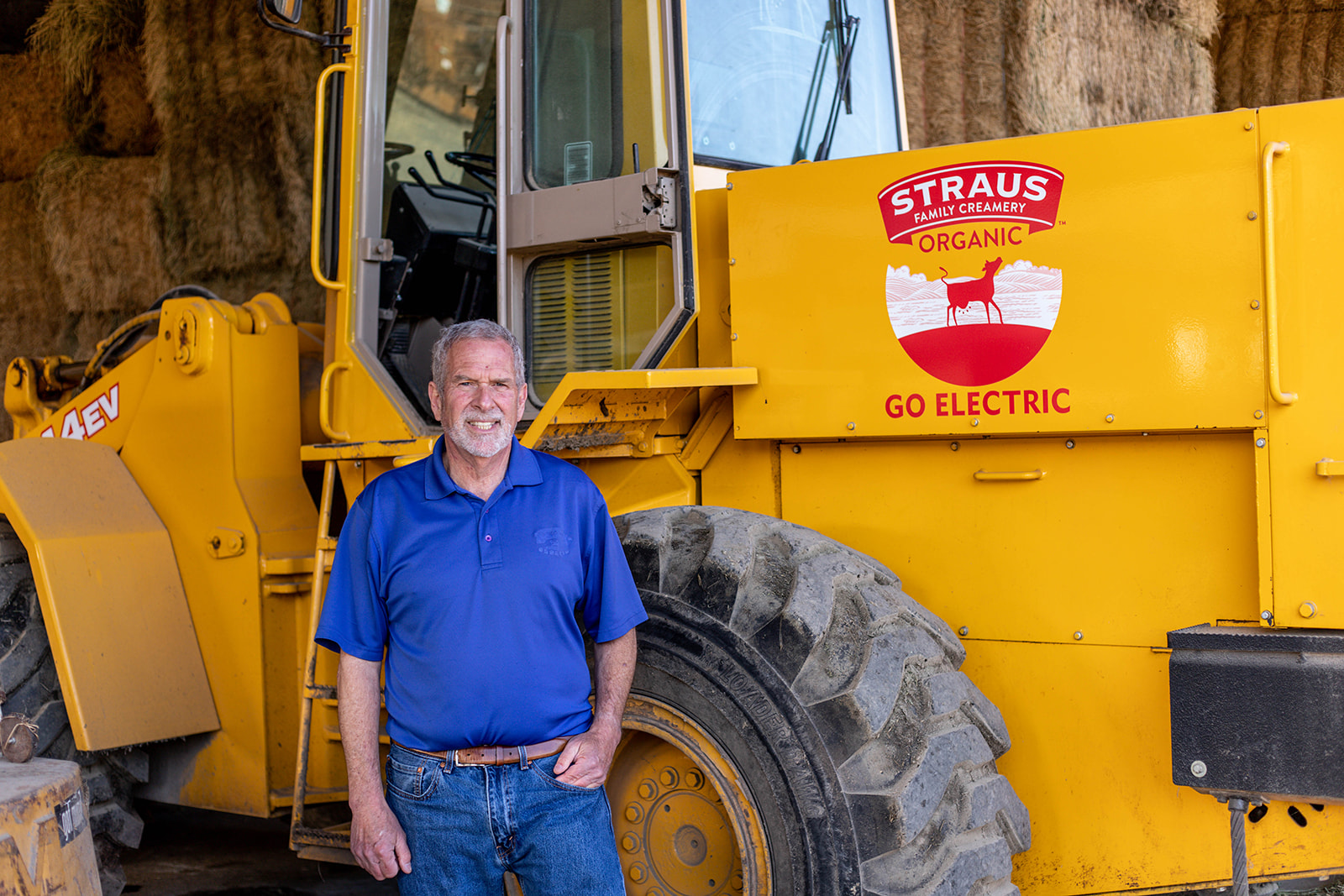By Grace van Deelen
Straus Family Creamery, an organic dairy producer in Marin County, California, made headlines last fall after receiving approval from regulatory agencies to conduct a trial of a new seaweed-derived feed additive called Brominata.
Brominata is made of a red seaweed, Asparagopsis taxiformis, and is one of a class of feed additives that, when given to dairy cows, helps to reduce the amount of methane—a powerful greenhouse gas—they release when they burp, called enteric methane. One cow belches out 220 pounds of methane each year, the greenhouse gas equivalent of burning over 900 gallons of gasoline.
The addition of the seaweed to the cows’ diets on the Straus dairy farm proved effective, showing an average of a 52 percent reduction in enteric methane emissions, with one cow’s emissions reduction as high as 92 percent.



